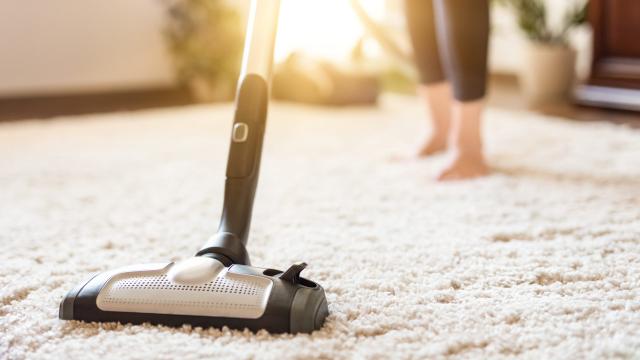If your area has poor air quality right now, you may have heard that it’s not a great idea to vacuum your home. Then again, vacuuming is also a tool that can help get dust and allergens out of your house, suggesting that sometimes it’s a good thing. There’s truth to both, so here’s what you need to know.
Vacuuming kicks up dust
No matter how you vacuum, you’re probably kicking up dust, which is why public health agencies like the Oregon Health Authority recommend not vacuuming when wildfire smoke is in the air. (Vacuuming kicks up dust any time you do it, but when the air outside is smoky, it’s important to keep indoor air clear so you have a place to breathe a little easier.)
A few things happen when you vacuum. First, the dust that has settled on surfaces is disturbed, and while much of it makes its way into the vacuum, not all of it does. Second, vacuums tend to be leaky, so not all of the dust that’s sucked into the vacuum stays there. And finally, the vacuum itself may create dust, just because whirring machinery moves and breaks down over time, so microscopic bits of the brushes can end up in the air.
Actual HEPA filters trap dust
So then how can vacuums help? Or is there a type of vacuum that creates less dust? Your best bet is going to be a vacuum that properly uses a HEPA (high efficiency particulate air) filter. This means two things:
- The vacuum’s filter meets HEPA requirements, “capable of capturing particulates of 0.3 microns with 99.97% efficiency.”
- The vacuum is constructed so that air cannot leak past the filter. This is sometimes called a “sealed system.”
That second requirement makes the vacuum significantly more expensive, which is why so many vacuums advertise that they have a “HEPA material” filter. That’s great, but if the vacuum doesn’t force all of the air through the filter, the type of filter doesn’t matter much.
HEPA vacuums can still kick up dust, so there’s no perfect solution here. The American College of Allergy, Asthma and Immunology recommends that if you have a dust allergy, you either want to wear an N95 respirator while vacuuming, or have a non-allergic person do the vacuuming for you. Dust takes about two hours to settle again, they note. So you can vacuum to remove dust from your indoor environment, but plan carefully to minimise the amount that ends up in the air.

Leave a Reply
You must be logged in to post a comment.